What is Cohesive Devices KarleysrRich
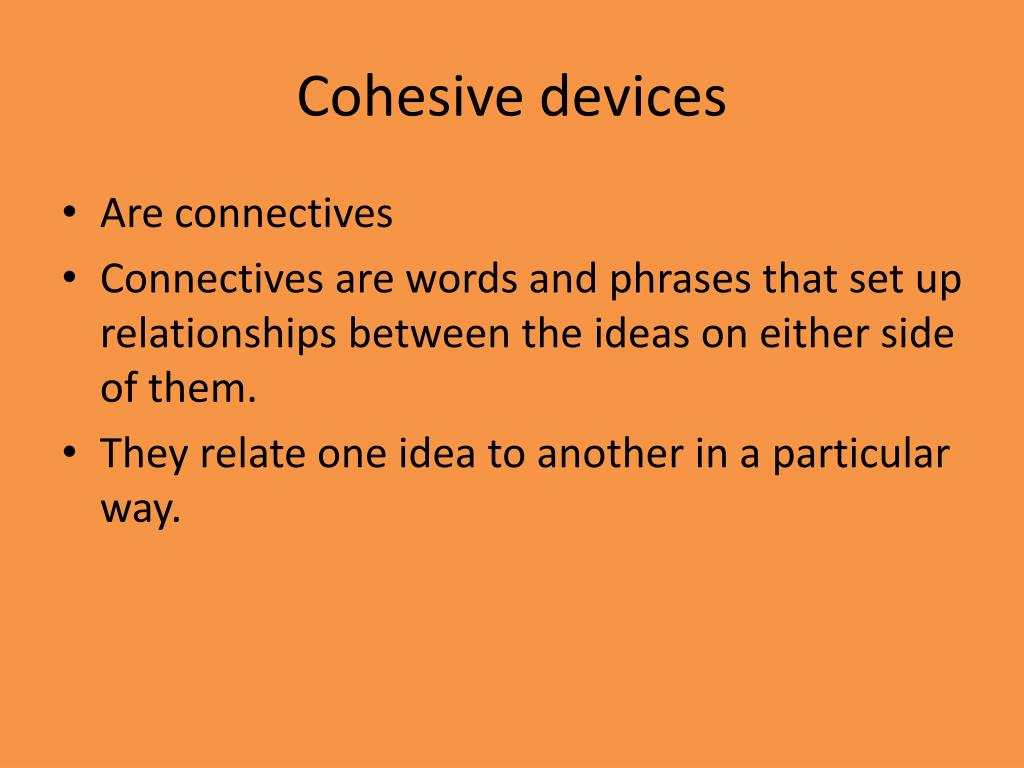
PPT Cohesive Devices PowerPoint Presentation, free download ID2792422
This chapter illustrates the main types of cohesion and conjunction devices with examples of naturally occurring discourse, and expands on the texture-creating nature of cohesion and conjunction by examining how lexical chains, those that are made up of different cohesive devices, are interspersed in discourse, and work together with.

Cohesive Devices YouTube
Manuel Campos - October 25, 2023 Cohesive devices are sometimes called linking words, linkers, connectors, discourse markers, or transitional words. Cohesive Devices are words or phrases that show the relationship between paragraphs or sections of a text or speech.

ENGLISH 8 USE OF COHESIVE DEVICES IN VARIOUS TEXT TYPES YouTube
Cohesive devices are words, phrases, or techniques used to connect ideas and create coherence in writing. They help establish relationships between sentences and paragraphs.
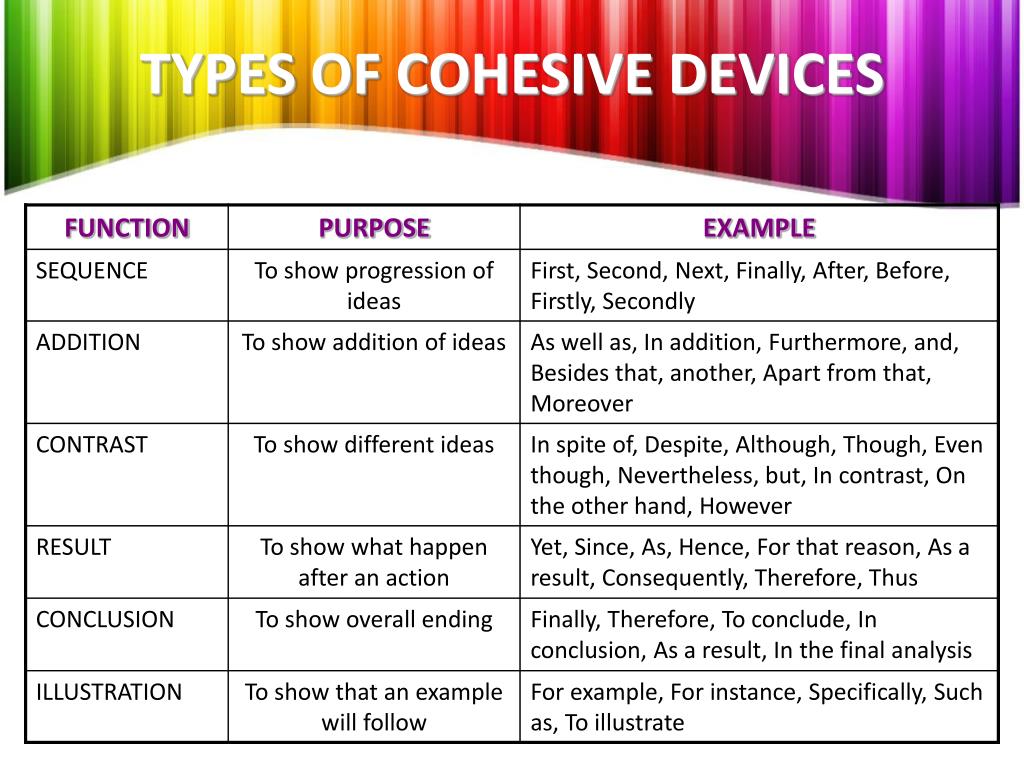
Types Of Cohesive Devices Hot Sex Picture
Cohesive devices are words used to show how the different parts of a text fit together. In other words, they create cohesion. Some examples of cohesive devices are: determiners and pronouns, which can refer back to earlier words conjunctions and adverbs, which can make relations between words clear ellipsis of expected words. Julia's dad bought her a football. The football was expensive.

Cohesive Devices TED IELTS
A short guide to cohesive devices covering reference, substitution, ellipsis, cohesive nouns, lexical chains, and conjunction.
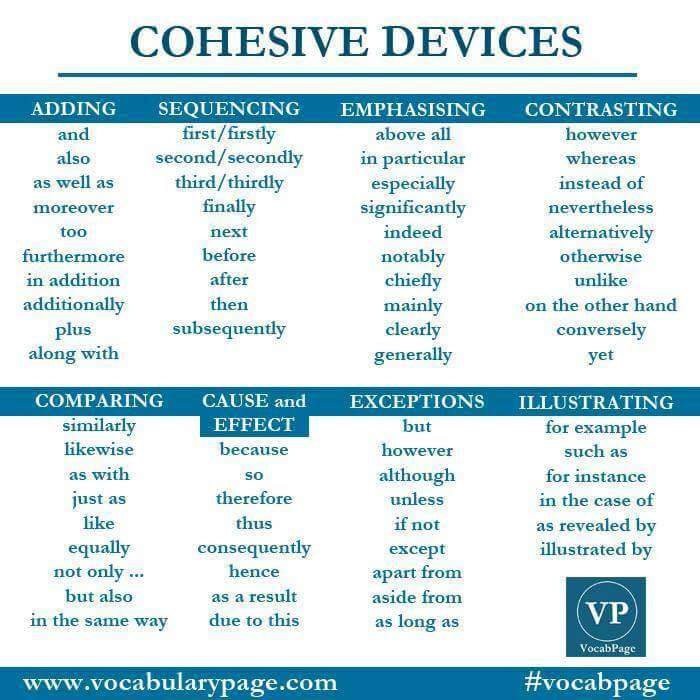
cohesive devices Archives Vocabulary Home
Cohesion: In English, grammar is the logical organisation of phrases, sentences and clauses to make them easier to read and comprehend. The most common way to organise writing in this way is through cohesive devices. Readers will quickly follow when words, concepts, and descriptions come together clearly, and the writing is coherent.

Cohesive devices in IELTS, coherence and cohesion
Chapter 2. In Chapter 1 of this short reader on cohesive devices, we explored the concept of cohesion in a piece of academic writing and introduced four types of lexical cohesion: reference, substitution, collocation and semantic fields. In this next chapter, we turn our attention to the four grammatical strategies that can be used to improve.
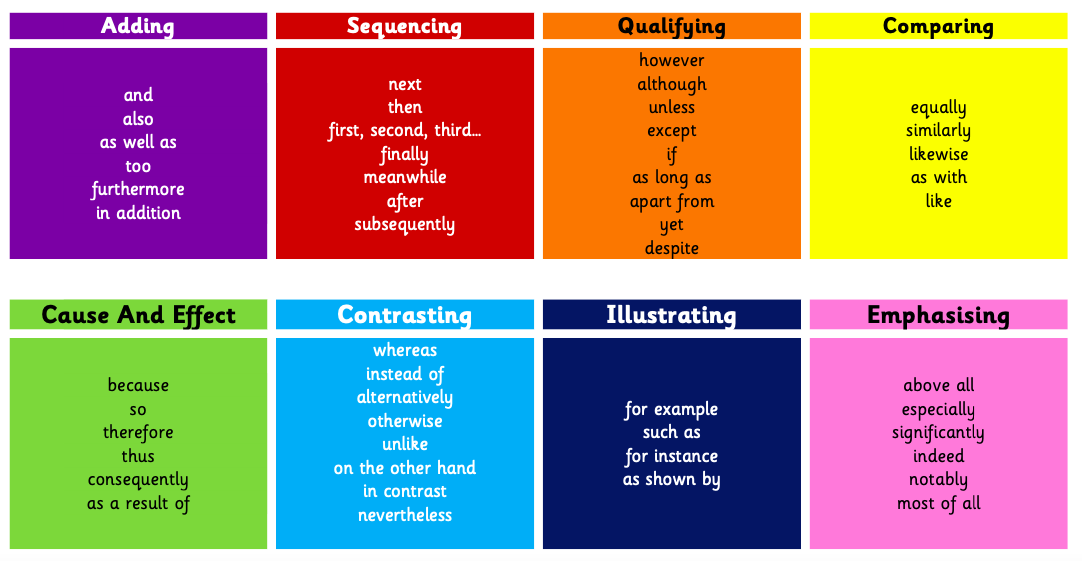
Cohesive devices YEAR 4
Cohesive devices help you indicate contrasts or differences between ideas in a text. When you want to introduce opposing or contrasting thoughts, you can use the following words or phrases. 1. However: She is an excellent team player; however, she prefers working on individual projects. 2.
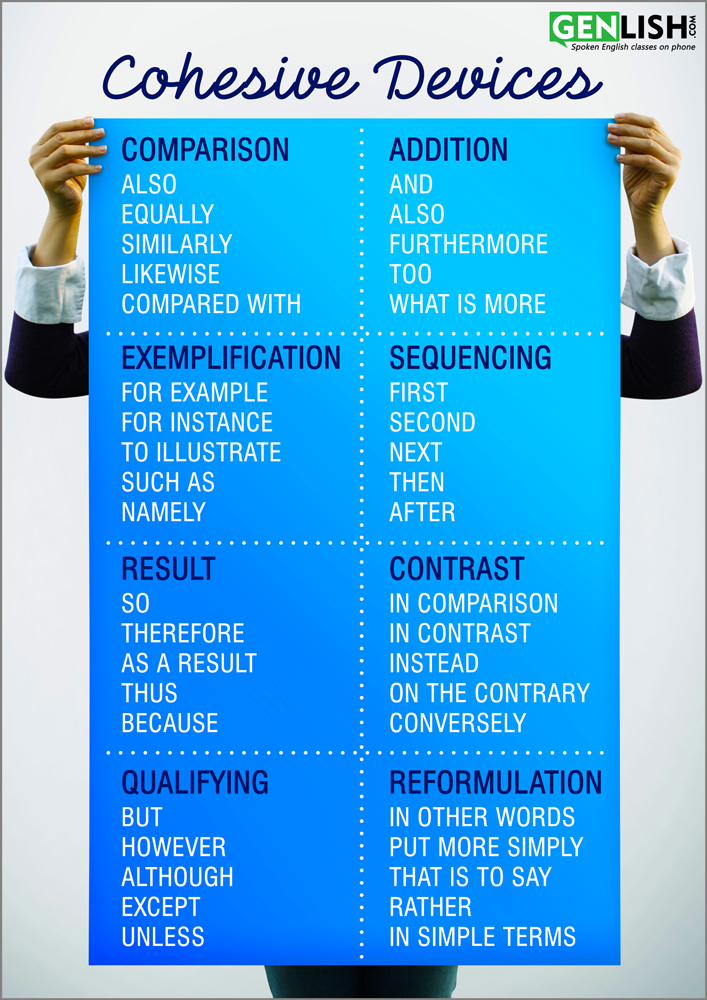
Cohesive Devices Genlish
Examples of Cohesive Devices Connect Paragraphs & Sentences with Linking Words WORD Don't over-use linking words or phrases or use inappropriately - this could become confusing or irritating for the reader. Also don't always use linking words at the beginning of sentences - show more variety.

How to Use Cohesive Devices Correctly [for IELTS Writing] TED IELTS
The term 'cohesive devices' refers to the conjunctions, connectives and pronouns used to link the parts of a piece of writing. Using the same verb tense throughout a text also offers 'cohesion'. Primary-school children may be asked to identify and use cohesive devices in their writing during their time at primary school.

How to Use Cohesive Devices Correctly [for IELTS Writing] TED IELTS
A cohesive device is a word that helps join parts of your essay together. They are also known as linkers, linking devices, transitions, transitional phrases, or signposting language. However, as the IELTS marking rubric refers to them as "cohesive devices," then I shall also use that term today.
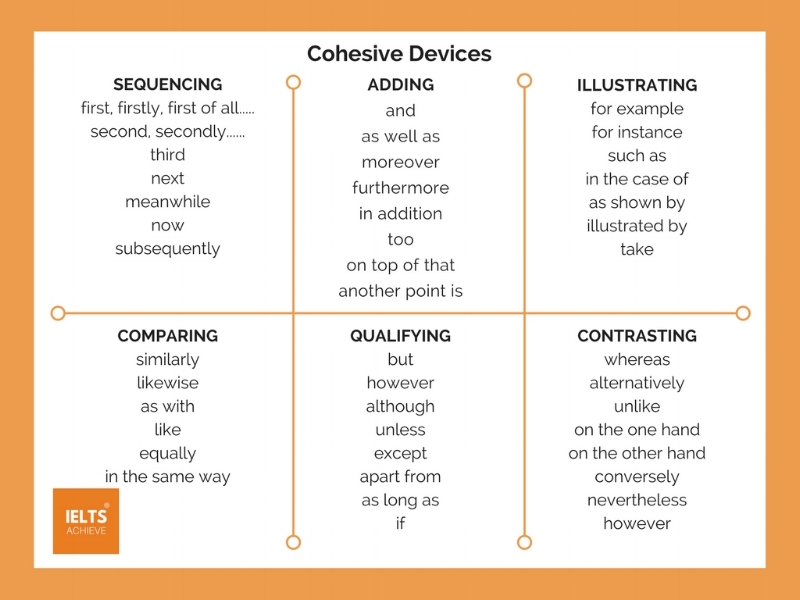
How To Use Cohesive Devices — IELTS ACHIEVE
972 Share 118K views 5 years ago Spelling and grammar videos Learn how and when to use cohesive devices like determiners, pronouns, conjunctions and adverbs. Perfect to help with grammar.

30 Cohesive Devices to Improve Your Writing Included Examples Class with Mason
Cohesive devices are words or phrases used to connect ideas between different parts of text. There are three main types of cohesive devices: Pronouns that refer back to a previously mentioned noun. Example: Jim went out to the playground. He played on the swings. Substitution of a synonym for a previously mentioned noun.

IELTS Cohesive Devices
It refers to the use of linguistic devices to join sentences together, including conjunctions, reference words, substitution and lexical devices such as repetition of words, collocations and lexical groups. Example

L3 Th5 Cohesive Devices Diagram Quizlet
Cohesive devices, sometimes called linking words, linkers, connectors, discourse markers or transitional words, are one of the most misunderstood and misused parts of IELTS Writing. Cohesive devices are words like ' For example ', ' In conclusion ', ' however ' and ' moreover '.

The Cohesive Devices IELTS Writing Swoosh English
Cohesive devices are useful English language conjunctions, transitional phrases, synonyms and pronouns that express ideas in a cohesive manner.They are used to join sentences together to make ideas more understandable to the reader. Coordinating, subordinating and correlative conjunctions are the most used cohesive devices and are used to connect ideas for cohesive, readable text.